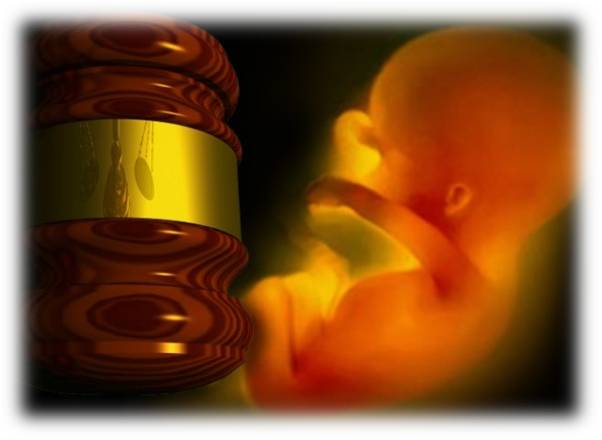Last month, we reported that the U.S. Supreme Court had announced that the justices were granting the request of the Trump Administration to wipe away a ruling by a federal appeals court that allowed minor teen illegal immigrants who were in U.S. custody to obtain an abortion.
That was hardly the end of a hugely controversial case. The underlying issue of whether undocumented teen immigrants in government custody have a right to abortion is yet to be decided.
Last Friday, Courthouse News’s Kelsey Jukam reported that an 11-state coalition asked the U.S. Court of Appeals for the District of Columbia to reverse a decision allowing a 17-year-old undocumented immigrant to have an abortion
arguing the order “incentivizes even more unlawful immigration” and undocumented immigrants are not entitled to the same constitutional rights as others in the United States.
Texas Attorney General Ken Paxton, whose solicitor general filed the coalition’s amicus brief, “said in a statement Friday that the ruling could turn Texas into a ‘sanctuary state for abortion.’”
The nub of the amicus’ argument comes early in the 31-page brief:
In this case, the district court has entered an order declaring that the U.S. Constitution confers on unlawfully-present aliens the right to an elective abortion that is not medically necessary—even when they have virtually no ties to this country. Until this litigation, no court had ever before recognized such broad rights for unlawfully-present aliens with virtually no connections to the country. If this Court affirms the decision below, there will be no meaningful limit on the constitutional rights an unlawfully-present alien can invoke simply by attempting to enter this country illegally. Such relief would also contradict the Supreme Court’s longstanding precedent that full Fifth Amendment rights accorded to citizens can only be extended to those aliens who “have come within the territory of the United States and developed substantial connections with this country.” United States v. Verdugo-Urquidez (1990).
According to Court House News, the states’ amicus brief focused on a footnote in U.S. District Court Judge Tanya Chatkin’s temporary restraining order which allowed Doe to get an abortion. Chatkin’s wrote that the plaintiffs’ “Fifth Amendment right to decide whether to continue or terminate their pregnancies is not diminished by their status as undocumented immigrants.”
Click here to sign up for pro-life news alerts from LifeNews.com
Back in October, the District of Columbia Court of Appeals sided with a federal district court in Azar v. Garza, and ordered the Trump administration to allow “Jane Doe” who crossed the border illegally, to obtain an abortion. Under current U.S. law, when a minor crosses into this country without parental supervision they are placed in federal custody. The court ordered that she be temporarily released from this custody specifically so she could have an abortion.
Unfortunately, the young girl followed through and was able to end the life of her child with the help of the pro-abortion ACLU. Even though the teen had already received an abortion, the Trump Administration saw this as a potentially dangerous precedent that could have applied in similar circumstances, resulting in the deaths of additional children in the womb.
In the statement released by the Supreme Court, it said that the matter was moot–not debatable–because the abortion had already happened. However, similar lawsuits will be allowed to continue through the court system, meaning this issue could eventually come back to the Supreme Court as the courts start over in adjudicating the case.
In the original court proceedings, the Solicitor General charged the ACLU with deceiving the government about the timing of the young girl’s abortion. The government did not have the time to appeal the decision, and the girl was able to abort her unborn child before the courts could intervene. This fact was cited by the U.S. Justice Department to the Supreme Court. The Supreme Court said it “took seriously” the Solicitor General ‘s allegations but concluded “not all communication breakdowns constitute misconduct.”
LifeNews.com Note: Dave Andrusko is the editor of National Right to Life News and an author and editor of several books on abortion topics. This post originally appeared in at National Right to Life News Today —- an online column on pro-life issues.








